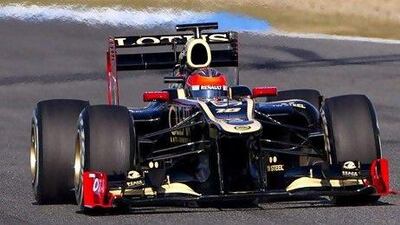On location: Central Market, Al Ain. It's an oasis of green in the city, and shopkeepers say business is improving, but the place is still a well kept secret. Ola Salem reports, with photos by Delores Johnson
Outside the plant stores in the Central Market in Al Ain, Afghan, Pakistani and Indian "gardeners" stand silently, waiting for customers.
Business has risen steadily in the three years since the market opened, the shopkeepers say, but add that they are still unable to make a decent profit.
"We come from Fajr to Maghrib," says Baz, an Indian, referring to Muslim prayer times. "There are customers, but little."
At 8.45am, the sound of an approaching car echoes through the market. The shopkeepers raise their hands in unison, signalling to the driver of the white Lexus that theirs is the shop to visit.
But the driver dismisses the invitations and speeds past, and the workers go back to what was occupying them earlier.
An elderly woman walks around the flower and plant stores, looking for Lebanese lilies.
Baz acts fast. He brings out a lily. It's Lebanese, he says, but the woman is suspicious. She asks for a Syrian plant instead; he brings out a flower identical to the first.
Next door, MG, a Jordanian, is dying to tell the women she is being duped. He hesitates.
"I am a biology graduate," says MG once she is out of earshot. "I know these plants; all the other Asian workers don't know anything at all.
"We are meant to all be gardeners - this is a plantation, not a supermarket. We are meant to produce our own plants and sell them here."
The excitement he felt a year ago, when he was starting his own business, has long dissipated, he says. He was told before he set up shop that this centre was to be the only place in the city to go for plants; the rest of the stores would be closed or relocated to the Central Market. That has yet to happen.
"People prefer to go there," he says, referring to other locations in the city where one can buy plants and flowers, places that are more centrally located.
"Here, like you can see, we are far." He is struggling financially, getting by only through other sources of income.
"Hamdulillah, I am better than the other stores, I have other sources of income, but others had to close," he says.
"I pay Dh40,000 per year for rent for this place, and the profit is not supporting our expenses. We even have to pay for water and electricity, so expenses are very high in summer."
For five months during the summer the market is dead, devoid of customers.
"From the end of May until September no one is here," says Hamed, an Afghan who works in one of the flower stores.
Not only does the heat dissuade shoppers, he says; it also turns watering and tending the plants into a chore.
MG's shop, at the far end of the row of 60 shops, is the only one that also sells birds, paving materials and garden ornaments in addition to plants, trees and shrubs.
"I want people to see this and imagine their own garden," he says. "If a person has just purchased a house for Dh4 million and doesn't know what to do with his garden, we want to give him the idea."
He excuses himself to greet an Emirati customer who says he is looking for fruit trees.
Typical, MG says later. Emiratis always look for fruit trees, western expatriates prefer indoor plants, and Arab expatriates take ornaments.
"Abu Dhabi plantations are doing much better," he says. "There are more westerners who care about these plants and flowers more."

